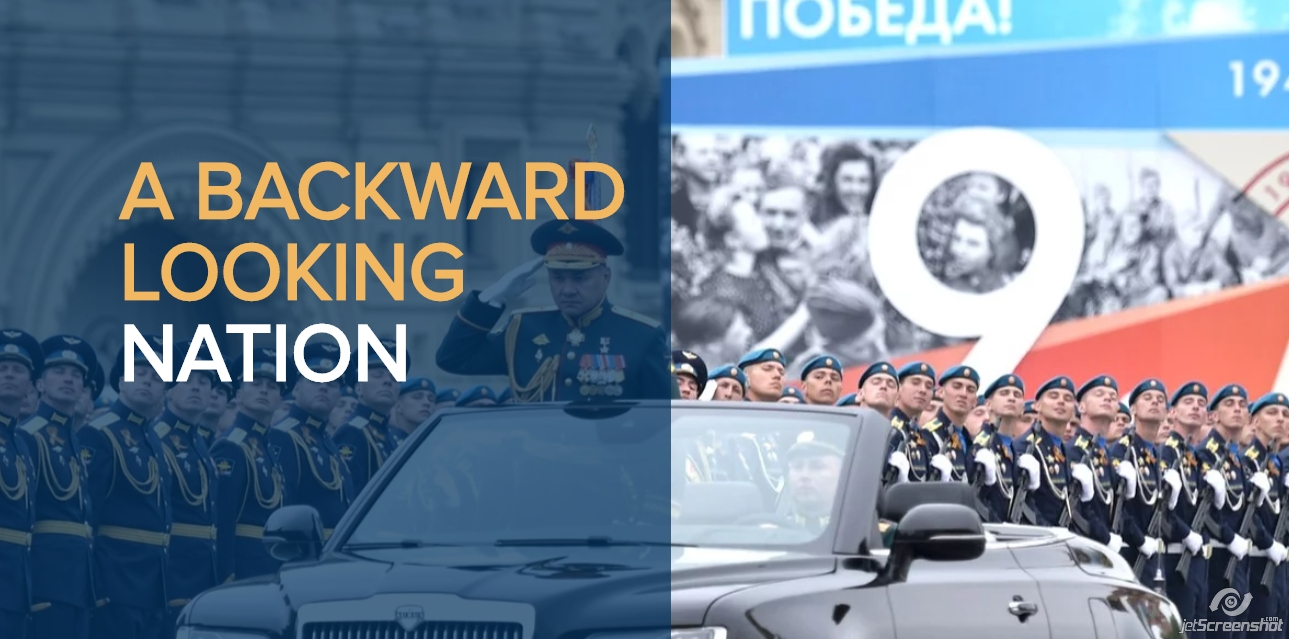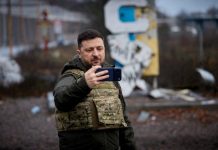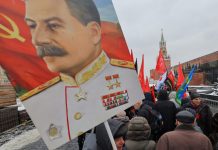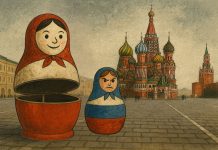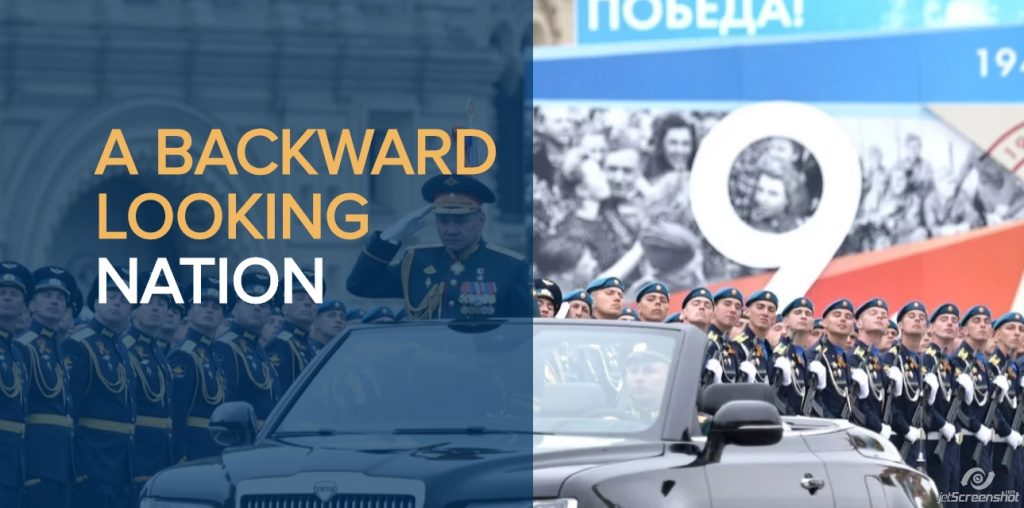
By Maria Snegovaya, for CEPA
The phenomenon is called “Pobedobesie,” or “victory frenzy.” The May 9 anniversary of the defeat of Nazi Germany in the Second World War involves sausages adorned with the black and orange St. George colors, kindergarteners wearing Soviet military uniforms, and online stores selling underwear with patriotic symbols.
The Putin regime uses the event to build legitimacy. But the result is to make Russia into a backward-looking nation.
In the Soviet Union the October Revolution on November 7 rather than Victory Day was the main state holiday, marked by annual military parades. From 1948 until 1965, May 9 was not a holiday at all, reflecting the traumatic memory of the enormous cost of the war, and the long-buried failures of Joseph Stalin’s leadership, which hugely increased those costs. Nikita Khrushchev avoided celebrating Victory Day for an opposite reason — the victory was so tightly interlinked with the legacy of his predecessor, contradicting his tentative de-Stalinization policies in the late 1950s and early 1960s.
Members of the Communist elite under Brezhnev were too young to take part in the 1917 revolution but they had participated in the war, which they turned into a major source of legitimization for the Soviet system, at a time when its inability to fulfill the promised Communist society was increasingly apparent. The emphasis on wartime victory also allowed Brezhnev to carry out a long-desired partial rehabilitation of Stalin.
Seen through this lens, the victims, troubles, and misfortunes of the past were not in vain. Indeed, it was for the sake of this great triumph that the revolution took place and Communism was built, that Soviet citizens suffered collectivization and Stalinist repression. Over time, the new victory myth replaced the memory of the revolution as the foundational core of Soviet history. This narrative resonated with a country that suffered disproportionate losses in the war (at least six times as many fatalities as Germany), and in which every family was affected.
After the collapse of the USSR Russians emerged as a divided nation, confused about their Soviet past and divided on their attitudes towards perestroika and the transition to a free-market economy. The only remaining national consensus centered around the “Great Patriotic War” (as the Second World War was called in Soviet history books). This continued to be perceived as the most important event of the 20th century (by 77% of respondents in an opinion poll in 1989 and 73 % in 1994). Above 80% of Russians consistently named the victory as a key source of national pride In the 1990s and in the early 2000s, Victory Day remained the second or third most popular holiday in Russia after the New Year celebration.
The Putin regime initially promoted Victory Day in an effort to unify a fragmented society. This narrative also matched Putin’s own worldview, who grew up under Brezhnev when the war myth was created. Putin restored Soviet wartime symbols, including those featuring Stalin’s portrait. On Victory Day in 2000, Putin began his congratulatory speech “brothers and sisters,” echoing the opening words of Stalin’s radio address to the Soviet people at the start of the war.
As Putin’s relationship with the West worsened, the interpretation of the war shifted to emphasize Russia’s historical struggle to preserve its sovereignty against the predatory West, as symbolized by Nazi Germany’s attack on Russia; the role of Western allies in defeating the Third Reich was conveniently silenced. Wartime memory has also become a geopolitical tool and an inspiration for Putin’s international ambitions. These feature repeated attempts to return to the post-war “Yalta” world in which large countries do deals over the heads of smaller ones. Victory Day celebrations became increasingly lavish and re-Stalinization continued with monuments to the dictator re-erected in Russian cities. Stalin-era repressions were either reinterpreted as a necessary evil or forgotten altogether. Victory Day overtook New Year celebrations in importance.
With international isolation and economic stagnation undermining confidence in Russia’s future, the emphasis on celebration of the glorious past and its former achievements increased. The quintessential symbol of this backward orientation is the Immortal Regiment parades, starting in 2012, in which people across Russia (and now in other countries) march bearing portraits of their dead relatives who fought in the war.
By Maria Snegovaya, for CEPA


